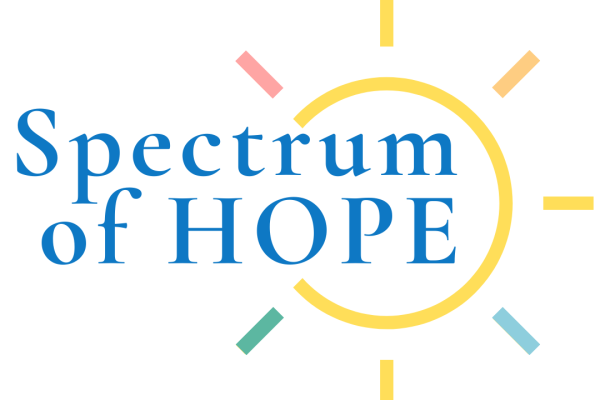Supplementing your child’s speech therapy with activities at home can be an effective way to improve their speech and language development. And thanks to new technologies, apps and language tools, in-home speech therapy has become more accessible than ever. These apps can provide a more interactive and engaging experience, making the experience more enjoyable and effective for your child.
Benefits of Incorporating Apps and Tools in Speech Therapy
Speech therapy apps and tools offer the following benefits:
- Accessibility: Apps and virtual speech therapy resources make it easier for your family to engage in therapy between professional sessions.
- Customization: With many apps, you can personalize the learning experience to your child’s individual goals and abilities. This way, you target practice sessions for the areas that need improvement.
- Engagement: Interactive apps can be especially fun for children, motivating them to actively participate in therapy.
- Feedback and progress tracking: Speech therapy for children online will typically provide real-time feedback on your child’s performance, allowing you to adjust goals as needed.
- Consistency: Incorporating apps and tools at home can reinforce skills learning in formal therapy sessions, promoting more progress.
Leveraging technology in language intervention can help you create a supportive, engaging environment for your child to develop their skills.
Top Apps for In-Home Speech Therapy
The following speech therapy apps for kids can supplement in-home therapy sessions, whether you access them on a phone or iPad:
1. SpeakEasy
SpeakEasy is one of the most popular speech therapy tools, built for all children, including those with language delay, autism or learning disabilities. The app includes evidence-based activities written by a team of speech therapists. All activities are easy to do at home, and content is customized to your child’s stage rather than age. When using the app, you have the option of exploring four different learning tracks:
- Language track for expressive and receptive language
- Articulation track for pronunciation and speech sounds
- Attention track for attention span and joint attention
- Autism track for neurodivergence, gestalt language processing and sensory needs
2. Speech Blubs
You’ll find numerous interactive tools to engage your child in speech therapy. Speech Blubs is one such app that offers visual intrigue to reinforce lessons. By using the voice-controlled speech therapy app, your child will be able to increase their vocabulary and enunciation while practicing skills in a stimulating environment. When using the app, children imitate sounds from “kid experts,” using fun face filters to keep children entertained while learning.
3. Splingo
Splingo is another interactive app that uses animations and a reward-based system to help children develop speech and language skills. The app was developed by speech-language pathologists, focusing on improving listening, language and fluency. It’s a highly hands-on app, easy for kids to navigate as Splingo the Alien guides them along. Your child can learn and practice by interacting with different images and responding to Splingo’s instructions.
4. Articulation Station
Articulation Station is an engaging app perfect for reinforcing speech and language lessons between sessions. The accessible, comprehensive tool was designed to help toddlers with pronunciation, enunciation and phonology. Within the app, your child can record their voice and play it back to work on their communication skills. Interactive speech therapy games and activities help keep them engaged with lessons, making the learning process more enjoyable.
5. CoughDrop
CoughDrop is a communication and support tool built for people with autism, cerebral palsy, Down syndrome or other communication needs. The full-featured yet simple and modern design is flexible enough to accommodate all children, and you’ll find starter boards for different communication levels, customizable boards, user-provided images, speech and other features.
Plus, with built-in reporting and messaging tools, therapists and supervisors can monitor your child’s progress in real-time, helping them design a consistent strategy and know that’s working across times and locations.
6. Little Stories
Little Stories is a speech therapy app filled with engaging stories to target speech sounds, reading fluency, sequencing, story retelling and conversation. Each story is a manageable 100 words long and paired with full-color illustrations, so your child will be excited to continue reading. Scavenger hunts, tongue twisters and other activities are built right into the app to make the learning experience even more fun and effective.
7. Word Vault
Word Vault is a comprehensive tool that teaches articulation, language and social skills. With 8,100 words, 1,800 phrases and sentences and 115 stories of targeted practice for articulation, there is so much to learn from this app between professional sessions. Track data in real-time, access over 2,400 HD images and have your child participate in interactive speech therapy games. Customizable features make the app even more effective, where you can add specific words, pictures and audio to personalized lists.
Overcoming Challenges and Ensuring Success
When incorporating technology and apps into your in-home therapy, you might run into obstacles like technical glitches, maintaining engagement and lack of personalization. However, there are many ways you can overcome these challenges to ensure your child’s success:
- Maintain consistency: It’s best to establish a routine, setting specific times for your in-home therapy sessions so you can stay on track. Apps, calendars and other reminder tools can be especially helpful for parents and therapists.
- Track progress: Many apps have built-in progress-tracking features, making it important to regularly assess and measure your child’s progress to ensure lessons are effective.
- Collaboration: Be sure to reinforce therapy techniques between your child’s speech therapy sessions. You can provide insights to your therapist about your child’s progress and challenges and ensure everyone is working toward the same goal.
- Use the right tools: Technological innovations have made speech therapy even easier to practice at home. Be sure you’re using the right tools to support your child. Recent trends include interactive apps with built-in games, virtual reality, telehealth and telepractice in speech therapy, as well as the use of tablets to enhance engagement.
Explore Speech Therapy for Your Child
Participating in speech and language activities at home can help you enhance your child’s progress between professional sessions. You’ll find numerous interactive speech therapy games, apps and tools to support your child’s communication and language development. MySpot Care provides both in-clinic and at-home applied behavior analysis (ABA) treatments for clients with autism. Our comprehensive services are helpful for speech and language as well as other functional skills.
Our board-certified and licensed behavior analysts will individualize your child’s care based on their age and skill level after assessment and evaluations. We’ll address your child’s unique needs with treatments offered in one of our convenient locations or in the comfort of your home. Contact us to learn more, or submit an intake form to get started.


